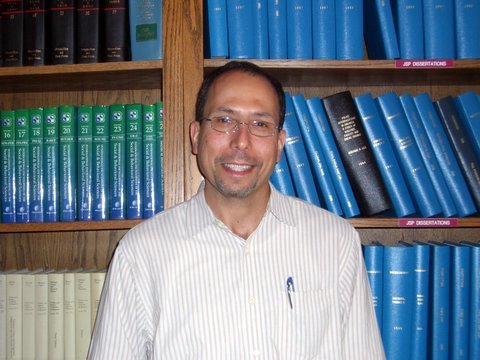End of the Graduate World as We've Known It
In a provocative Op-ed article in the New York Times, Mark C. Taylor, Chair of the Religion Department at Columbia University, calls for a fundamental rethinking of the place of departments and the preparation of both graduate and undergraduate students. Citing the increasing disconnect between what graduate (and undergraduate) students learn, and the jobs that await them, Taylor calls for restructuring universities around problem centered programs that would be reconsidered regularly.
Abolish permanent departments, even for undergraduate education, and create problem-focused programs. These constantly evolving programs would have sunset clauses, and every seven years each one should be evaluated and either abolished, continued or significantly changed. It is possible to imagine a broad range of topics around which such zones of inquiry could be organized: Mind, Body, Law, Information, Networks, Language, Space, Time, Media, Money, Life and Water.
As the Associate Dean of a program that has focused on the study of law in its social context, for both graduate and undergraduate students for the past thirty years (the program that is, not me!), I would like to offer an endorsement to Taylor's argument.


2 Comments:
[By way of avoiding conflict of interest, I must declare I'm applying to the program for which Dr Simon is associate dean.]
It appears that already many universities are moving, if slowly, in the abolish-the-high-departmental-walls direction, but mostly at graduate school level, and through the often prohibitively expensive and/or time-consuming "joint programs."
As a non-US citizen, I spent hours doing research on PhD programs at American law schools that prepare its students to be legal scholars and public policy researchers.
And I found only *two* programs (Berkeley and Indiana)!
The rest would offer such training only through either joint programs (JD and a PhD/masters) or through JSD (which has its own prohibitive requirements). The JD is useless for those (like myself) who are not planning to practice law in the US. And the JSD requires you start planning for the program at the age of 12 in order to get its requirements ready at a reasonable age (by 45 or something).
And this, I believe, confers an advantage upon the JSP program of Berkeley -- particularly since it allows (actually requires) students to study intensively at multiple departments of their choice, such as philosophy and history.
http://www.angaricopy.com/ ブランドコピー
http://www.angaricopy.com/product.asp?BigClassName=52 ルイ・ヴィトンコピー
http://www.angaricopy.com/Product.asp?BigClassName=64&SmallClassName=45 ロレックスコピー
http://www.angaricopy.com/product.asp?BigClassName=93 ウブロコピー
http://www.angaricopy.com/product.asp?BigClassName=58 エルメスコピー
Post a Comment
<< Home